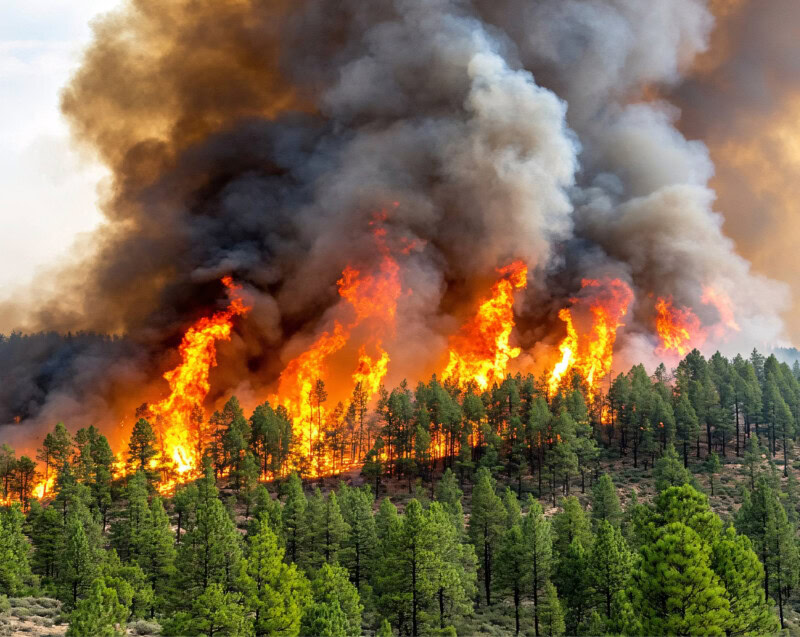Over the past few years, the western United States has been rocked by wildfires. Unlike many natural disasters, most wildfires are caused by people and are therefore preventable. That’s why for National Fire Prevention Week our experts are sharing preventative tips to keep fires from spreading.
Before starting any type of fire (e.g. campfire, burning yard waste or fireworks), it is important to take the following steps:
Comply with local laws or regulations and burn bans. Many western states have laws governing the time of day or year and what substances can be burned.
Check the weather. Wildfires are more likely to start when there are high winds because it can not only act as an accelerant, but also spread the fire. In addition to checking the weather, check the Wildland Fire Assessment System which provides current fire danger ratings for each state.
Control the situation. Use an easily controlled location for burning. If having a campfire or controlled burn, make sure the area is contained and can be easily distinguished. Campfires should be surrounded by rocks or a fire pit and set far away from any accelerants. Also keep a shovel, water and fire retardant nearby to keep a fire from getting out of hand.
Do not burn anything unusual. It is tempting to throw garbage into campfires rather than transporting them back home, but these foreign materials can occasionally be combustible and cause the fire to spread quickly.
Keep an eye on the fire. Never leave a fire unattended. Completely extinguish a fire by dousing it with water or covering with dirt before sleeping or leaving the site.
Unfortunately, even if we could eliminate human-ignited wildfires all-together, they would still exist due to natural factors such as lightning. Sometimes, due to climate and drought these kinds of fires cannot be avoided. And some are nature’s way of cleaning up messy underbrush. But you can help to stop them from spreading.
If you live in an area prone to wildfires there are things you can do to protect your home with landscaping. According to the American Red Cross, you should choose fire-resistant plants; create empty spaces between shrubs and trees and keep them pruned to keep flames from leaping between them; mow grass regularly and remove dead and dry plants that could fuel a fire. Lastly, contact 911, your local fire department or park services if you notice a fire or activities that could result in a fire.
Have questions about wildfire safety or preparedness? Contact us at webquestion@cteh.com.




